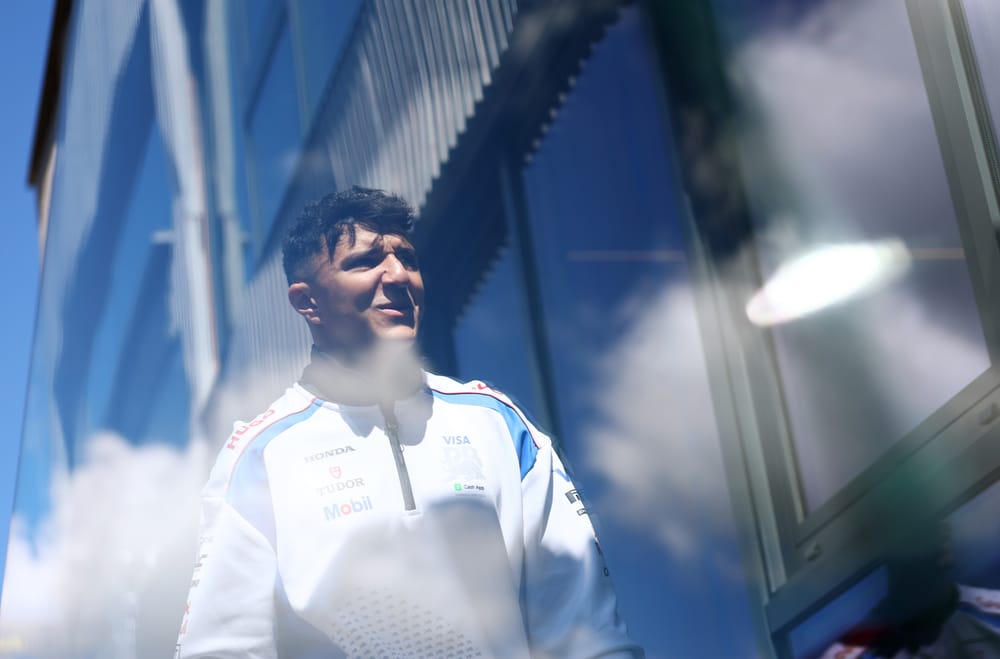Isack Hadjar's Dutch Grand Prix podium usurped his fourth place in qualifying the day before as the biggest result yet of his attention-grabbing Formula 1 rookie season. Scott Mitchell-Malm recently chatted to Hadjar about his start to F1 life and gave his take on this intriguing character who's now top of Red Bull's list for its second A-team seat.
Formula 1 drivers come in varied forms: confident, arrogant, self-critical, affable, aggressive, hyper-competitive, difficult, paranoid, sceptical, to name just a few options.
They are never just one thing, because drivers are still just human beings, and the more complex and interesting the better. Isack Hadjar might just be the most intriguing of all.
The enigmatic Red Bull rookie has been a fascinating addition to the grid. He is, pound for pound, probably the most curious driver on the 2025 F1 grid - rapid, raw, exciting on-track and a mercurial character off it: funny, extremely honest, but blunt and sometimes stand-offish.
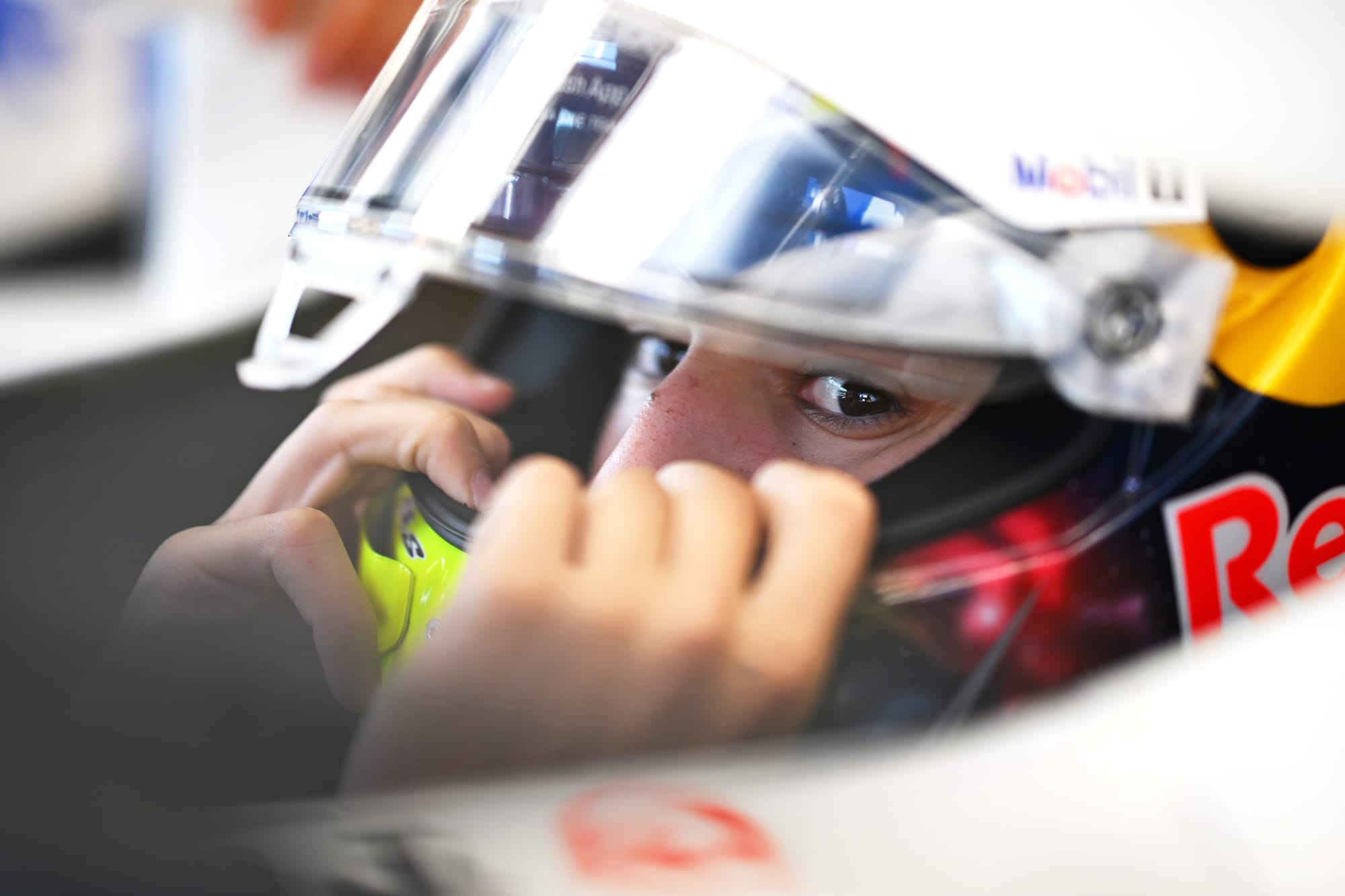
His plain way of speaking, and searing self-criticism, can come across harsh. And that's not just from the perspective of media sessions and mixed zone appearances that can grind to an awkward halt. Hadjar himself admits he has been told to "smile more" - not to be a forced extrovert, but to just be a slightly more upbeat figure in the garage and around his team.
As he tells The Race, Hadjar is openly working with someone on the mental side of being an F1 driver, and coping with the pressure, but he also has a striking realism forged from the hard reality of motorsport that helps him even out the ups and downs and might partly explain why he can come across as glass half-empty.
"I had much more setbacks and lows than I had good weekends in my career," Hadjar says.
"I would say in motorsports, good weekends are pretty rare. Since I've been used to…even my dad was always telling me, it's not really about [individual results] it's about the curve of progression during the weekend.
"So, you start somewhere and you need to end up there [gestures higher with his hand]. It's wherever you finish, it needs to be like this.
"That's what I always try to remember when things are going, like, not great – you can always turn the situation upside down. That's what I believe"
Hadjar has not had to worry about that too much in his rookie F1 season but when he has, his process has worked wonders. For someone who Red Bull feared might be a bit too emotionally volatile for F1, or at least for the very top team, Hadjar actually seems extremely well centred.
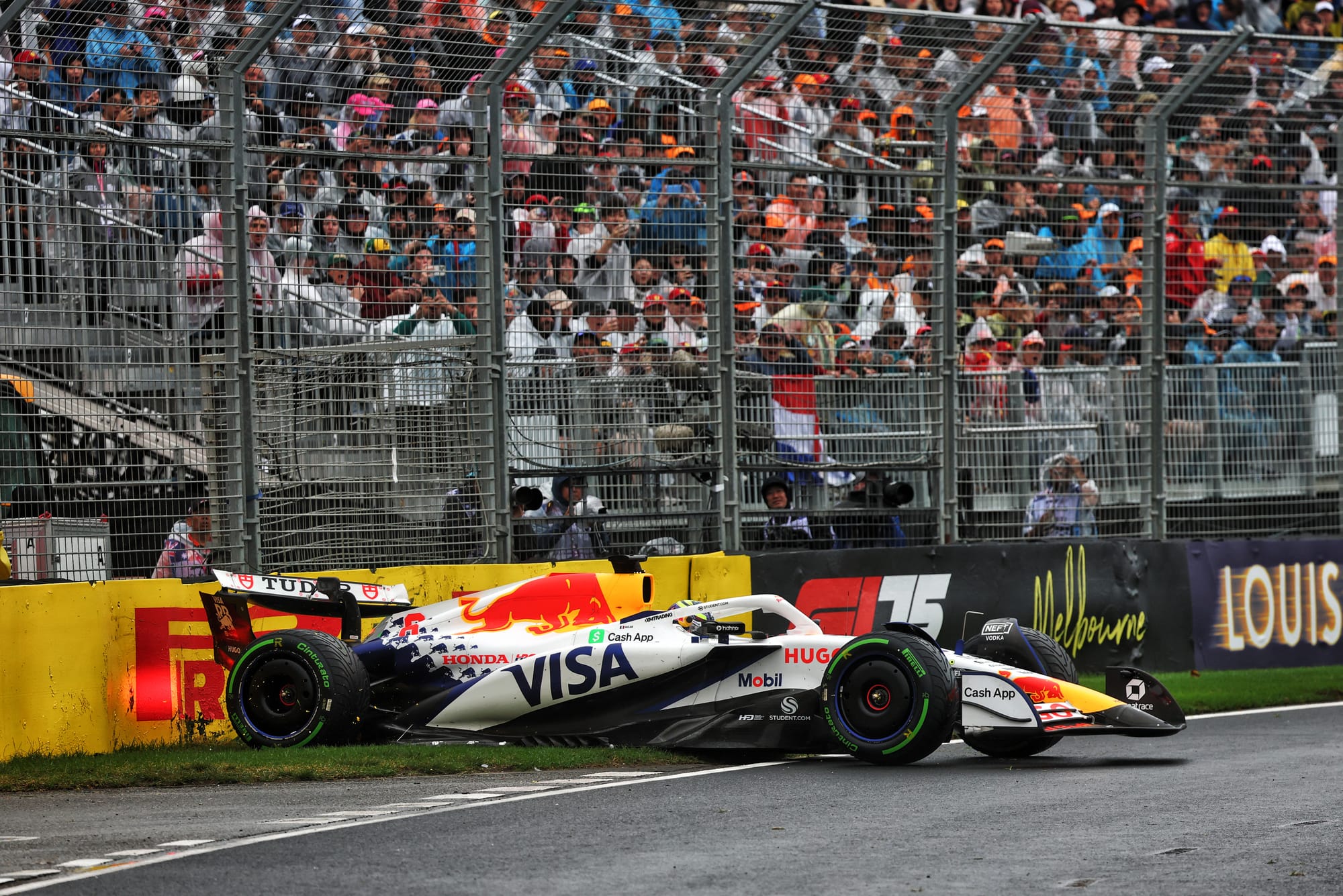
There was, of course, the formation lap crash in Australia on his F1 debut that he has turned into an irrelevant footnote. But he has also handled in-weekend stress points largely very well - Suzuka Q1 going awry because of a belt issue, for example, or two wall hits in Monaco FP2, could have wrecked both weekends on historic and very difficult F1 tracks, but instead he dug deep and produced two of his very best performances of the season.
It's not that he doesn't get angry, or upset - his penchant for lairy radio messages in F2 has, to a degree, followed him to F1. But it serves a purpose, as do his less-public moments like spending half an in-lap at Imola banging on his steering wheel.
"I need to evacuate, yeah," Hadjar says. "Otherwise, I keep it with me.
"So I need to, not [always] on the radio, but inside the car, I need to give a good shout! I need to otherwise it sticks with me, and that's my way of letting go so I can move on."
Brilliantly fast, hard-working and a good learner, Hadjar has the core assets required to be a very good grand prix driver. It has enabled him to adapt to F1 seemingly with ease, though that is deceptive because it implies a lack of effort that Hadjar cannot be accused of - this is someone who moved from Paris to Faenza to be able to live "basically next to" the Racing Bulls factory.
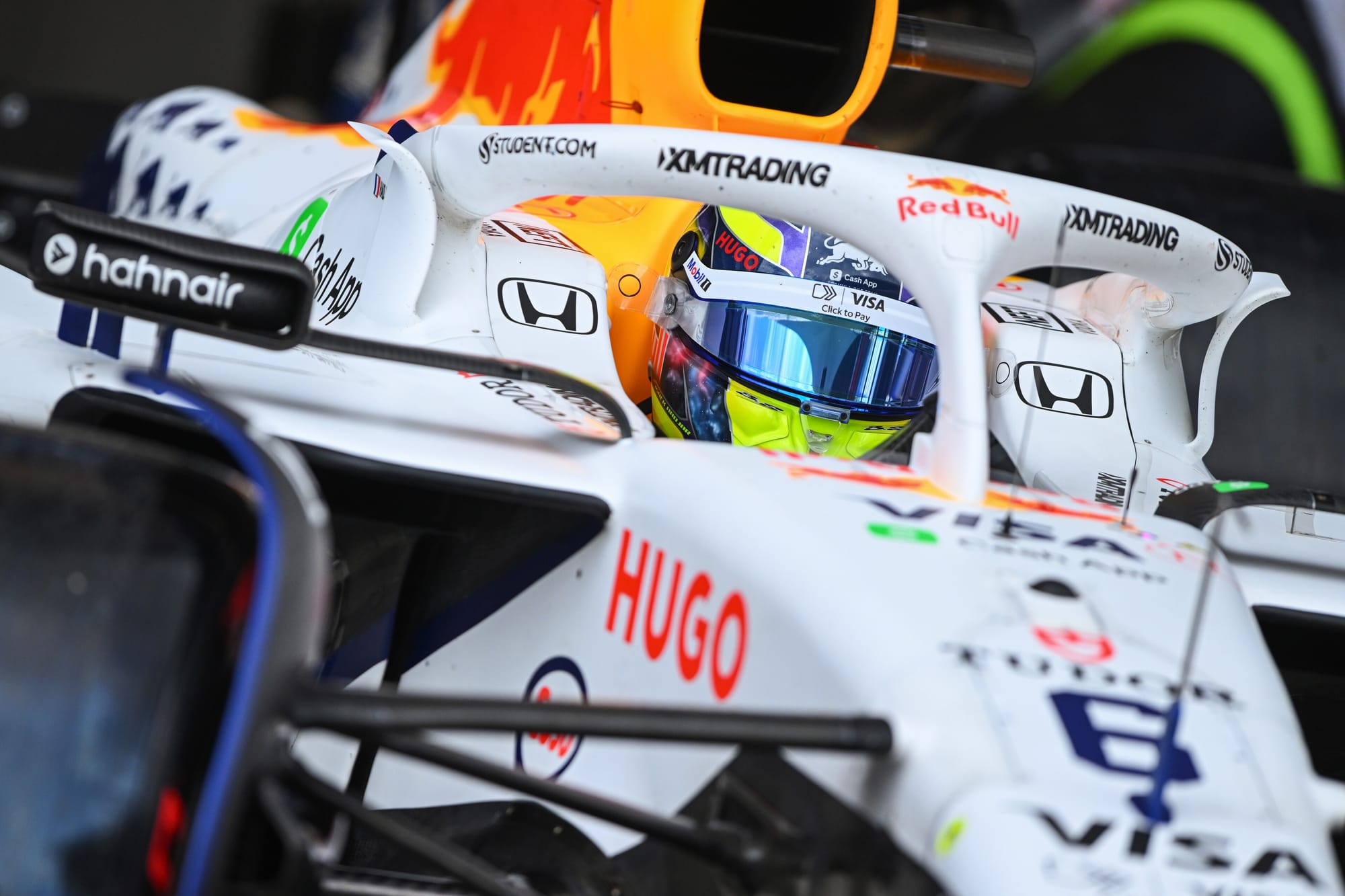
"The most important [part] was the time spent before the season with the guys, with Pierre [Hamelin] my engineer, because after Bahrain pre-season test to Abu Dhabi, we're flat out with the team, and we are seeing each other a lot," Hadjar explains.
"So I'm trying to prepare as much as possible before the exam. So I moved to Italy and basically I spent the whole month there [at the factory] working on everything I can work with and prepping every time, every kind of scenario, and learning all the technical aspects.
"We have a sim as well back there, I got to know more people. So it's just getting myself running, even though I'm not driving, it's just making sure my environment is known."
The result is that Hadjar has been a revelation. He was well regarded by Red Bull, but not considered such a mega-talent that he must be pushed into F1 at any cost - his promotion this year was only guaranteed by Sergio Perez's downturn in form and the reshuffle Red Bull axing him caused. That put him more in the Pierre Gasly bracket of Red Bull juniors (a driver who it promoted eventually, rather than one it moved mountains to accommodate - like Sebastian Vettel or Max Verstappen).
That inevitably raised some question marks over where Red Bull saw Hadjar's ultimate potential. But that is always a tough thing to gauge in young drivers and his junior career - while strong, especially at its peak - was always one of picking through some disappointments and applying context, especially when it came to a difficult rookie F2 season at 18 only two years ago.
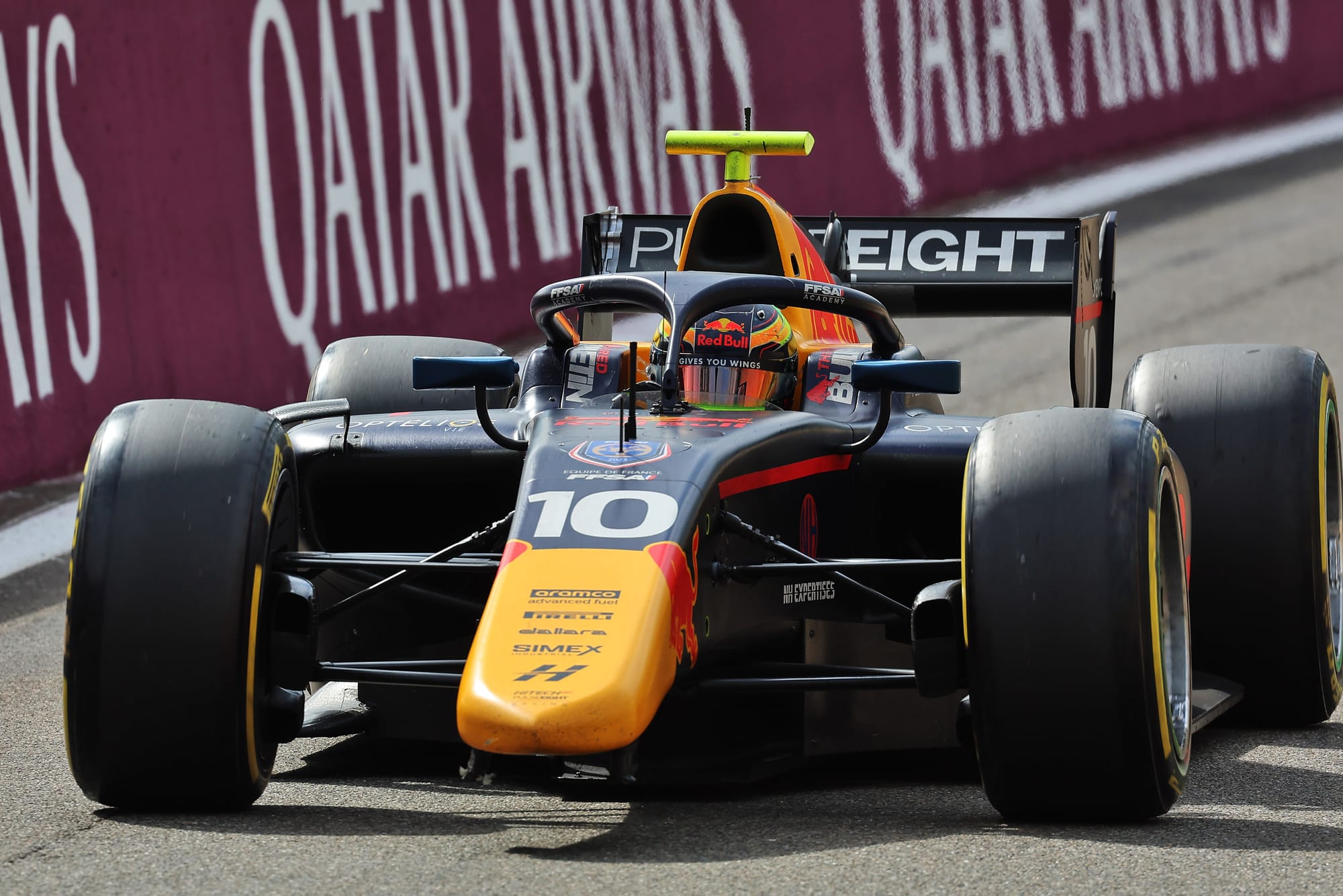
What is clear is that, having got his chance, Hadjar has shown the very best of himself. In another interview, when asked by The Race about the period of uncertainty at the end of 2024 as he waited to find out if he had an F1 seat, Hadjar admitted it was a very difficult time - but said Red Bull made the right choice in the end.
Yes, that was said half-jokingly, but there was a steel to it. Hadjar believes it. And he's backed it up with his performances: Red Bull was absolutely right to promote him, and he's been so good he is top of the list to partner Verstappen in the senior team next year if Yuki Tsunoda ends up being replaced. The doubts that might have genuinely delayed his F1 graduation, let alone made Red Bull wary of considering him a top-line option, seem to have vanished.
All this has come despite having the least F1 experience of any of the rookies this season because Red Bull didn't have a proper old-car testing programme for him. That's part of what makes the job Hadjar has done so impressive - the Racing Bulls car is clearly one of the most friendly on the grid, it's mechanically quite easy to set up and get into the sweet spot, but the job Hadjar's done with it belies his experience.
"I have had this the same since go-karting," he says. "I've been used to, like, the minimum mileage to get to a championship. So I'm used to being a bit underprepared compared to my competitors.
"In the end, it's an approach I have, and maybe a skillset I got throughout the years, because I just got used to maximising my track time as much as possible.
"I didn't feel unprepared [in reality]. I just felt unprepared compared to the others!
"[But] what I think is just doing kilometres for the sake of doing kilometers is not gonna be very useful. The raw speed, I have it, I don't need thousands [of kilometres] to get there. Something you can't buy and you can't experience is the actual race and this is where you're learning the most.
"If you have the speed, then you go to the races and you learn. But driving [in testing] is not going to save you from failing."
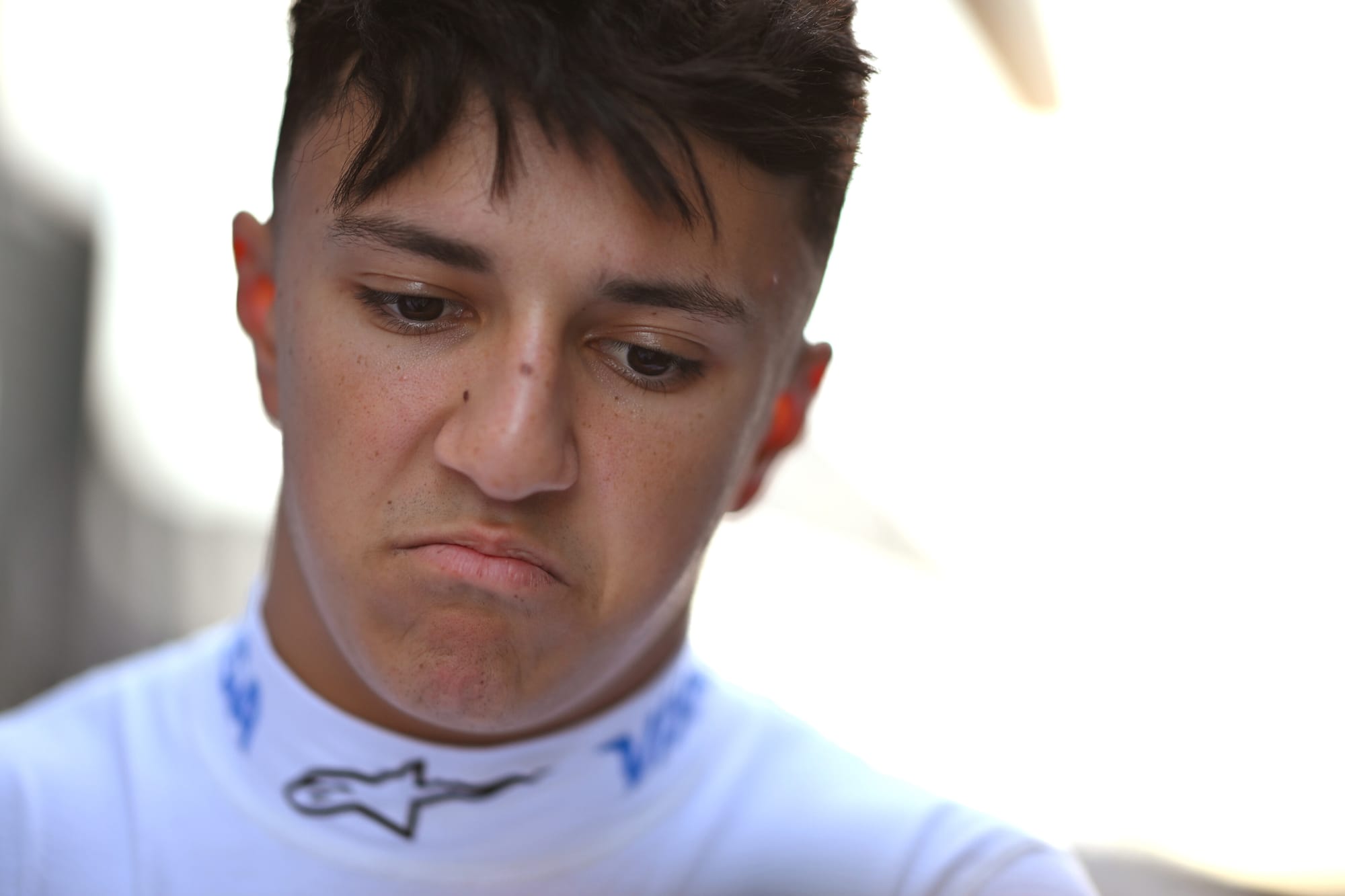
That's almost philosophical. To Hadjar it's probably just straightforward logic. But there is a hint within there that, pragmatic or not, he is aware of his disadvantage. And, he admits, that actually manifested in some doubts in pre-season.
"It's interesting because in Bahrain [testing] I felt like I couldn't put the single lap together," he says.
"I felt the raw speed was there. Obviously I couldn't compare directly to Yuki [still at Racing Bulls at the time] because we never ran at the same time, so it's always difficult to extrapolate and everything. But I felt like one lap pace wasn't very impressive.
"I was still getting used to Formula 1 speed. My previous test was Abu Dhabi before that. And I had a few doubts before going to Melbourne.
"But if anything, I just just think it was just a mileage issue, and just me getting used to it."
This did not take long. Top 10 pace from the start in Australia, even if he could not capitalise on that in the race, showed that. He was in the points at the third attempt in Japan, at such a legendary and challenging circuit as Suzuka, and three times in a row in the middle of the year.
That was when the Hadjar hype peaked and he is 13th in the championship and the leading Red Bull points scorer after Verstappen, something most rookies in his situation would have gladly taken if offered it in pre-season. But Hadjar does not sound particularly thrilled with his season so far.
"If I knew the low moments I would have, then I wouldn't have signed for that," he says.
"I would have tried to do better than this. The weekends I didn't nail, I should have nailed them. I would have tried to do it in a better way."
Hadjar's season has lost a little bit of momentum, as prior to the summer break he was on a five-race point-less run (although he did score one in the Spa sprint race). That has been due to a varied mix of factors: poor strategy in Canada, damage in the final stint in Austria, rear-ending Kimi Antonelli in wet conditions in Britain (Hadjar's worst mistake of the season), a car issue in Belgium and then getting stuck in 11th after losing ground at the start in Hungary.
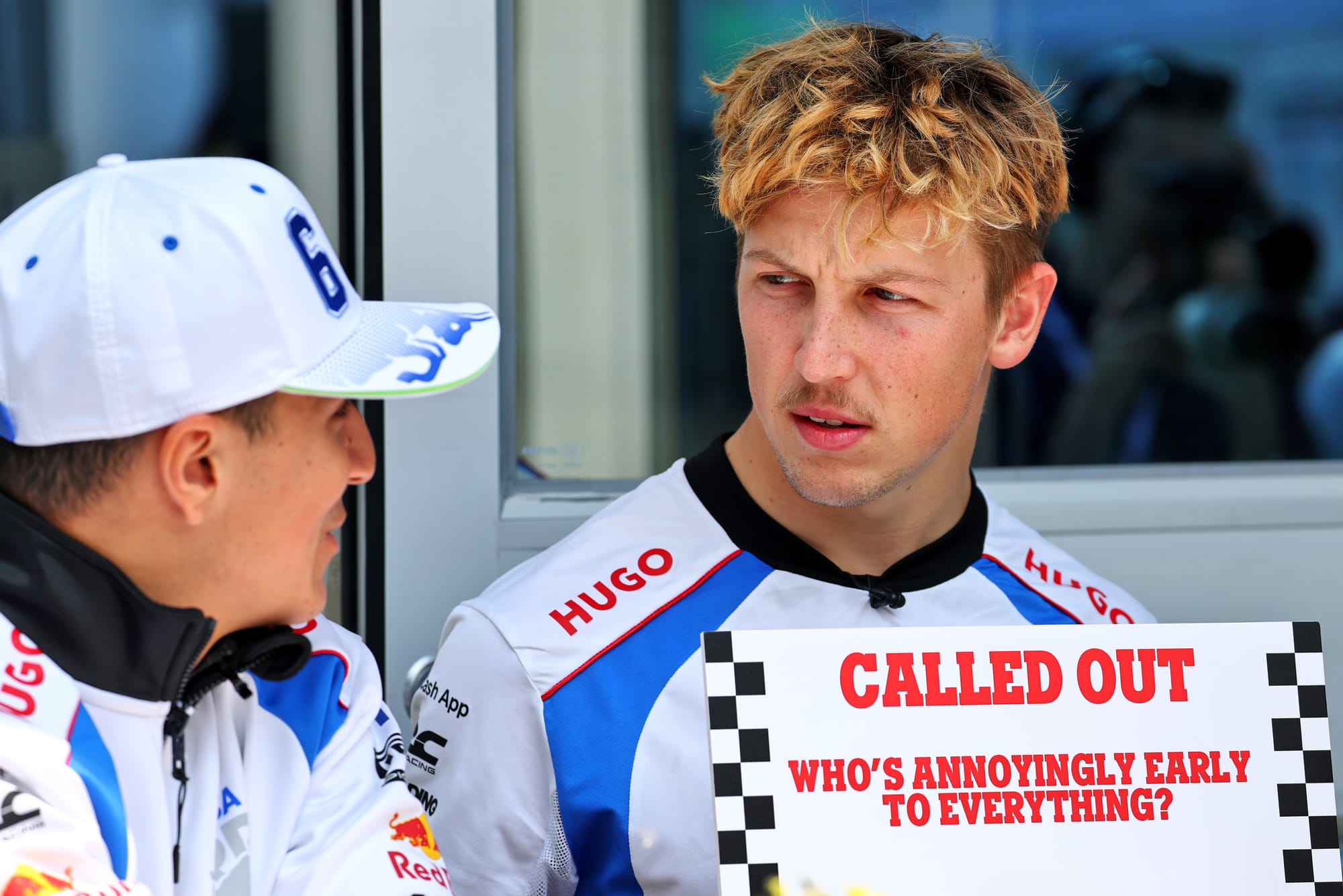
In that time, team-mate Liam Lawson's career revival has picked up steam. He's outscored Hadjar 16-1 in those five events, but while Hadjar has had some part to play in this troubled patch, a lot of it has been outside his control.
The fact that needs to be said for him, because he does not reach for any such excuse or justification himself, bodes well for him handling it properly. His self-deprecation isn't an act, and it doesn't go so far as to potentially wear him down, because he doesn't feel he is particularly hard on himself at all.
"No, I'm just honest with you guys," he says. "I always aim for the maximum potential I have before qualifying. And that's my target, is maximising everything.
"So if P5 was the result the car could have produced, and I got P8 and I was a tenth of that, I know I could have found that somewhere over the lap, and that's why I'm pissed, because I know there was a bit more.
"I'd rather be P12 then say 'this is the absolute best I can achieve' rather than being P8 not having maximised the car."
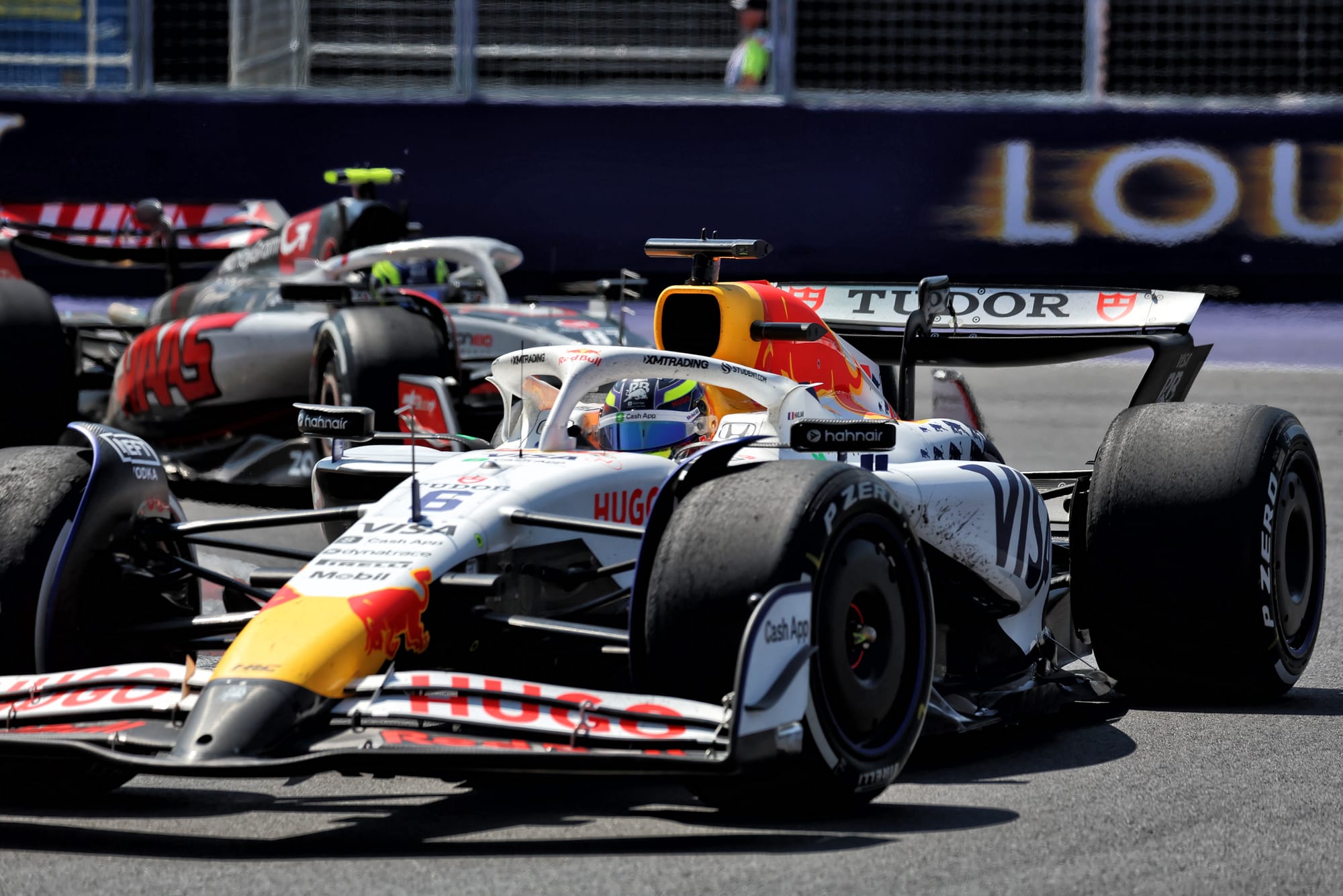
It also explains why there have been some good races where Hadjar has still cut a surprisingly neutral figure afterwards. He is not defining himself, or the quality of the job he is doing, by the end result. It's just whether he felt the performance itself was good.
This brings us full circle to Hadjar's mantra: 'You can always turn the situation upside down.' Now there is, purely in terms of results, a dip for him to come out the other side of, and complete a very strong, potentially career-changing rookie F1 season.
When he does, don't expect too much fanfare from Hadjar himself - although if it should lead all the way to a Red Bull Racing seat sooner or later, he should let himself enjoy the moment.


